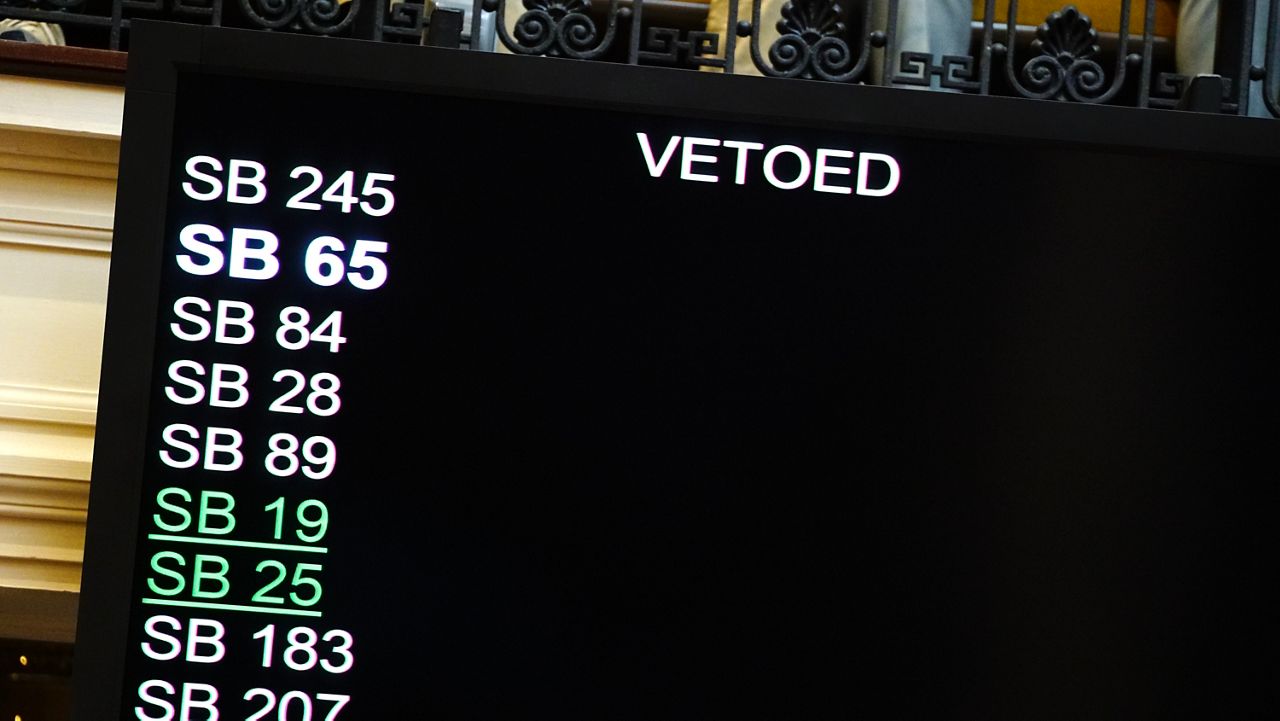FRANKFORT, Ky. — A bill set to become law on July 15 aims to change how kids removed from their home get placed into care. Senate Bill 151 prioritizes placing kids with relatives or fictive kin—a person not related, but with a significant relationship to the child—before foster care, but now the governor’s office says the executive branch cannot implement the soon to be law.
The bill passed both chambers unanimously this past session and was signed into law by Gov. Andy Beshear, D-Ky., on April 5. Sponsor, State Sen. Julie Raque Adams, R-Louisville said it gives more flexibility and financial support for a relative or trusted family friend caregiver of a child to be certified as a child-specific foster home. It also allows a child to provide, if possible, a list of names to be placed with to the court.
“All research indicates and points to the fact that kinship care and fictive kin are the best places for these kids to go when they are removed from the home,” Adams said.
Wednesday at an interim committee hearing, the Cabinet for Health and Family Services Department for Community Based Services commissioner, Lesa Dennis testified the cabinet would not implement SB 151 citing a lack of funding from lawmakers.
Adams said during the bill writing process, the cabinet told her they did not need additional funds.
“We specifically asked, ‘Do you need an appropriation for this?’ and their response was ‘We feel as if we can do this within our current budget parameters,’” Adams said.
Community-based services received more than $3.5 billion in the state budget over the biennium. However, five days after the governor signed the bill into law, the cabinet sent a letter to the General Assembly estimating it would cost around $20 million a year to implement SB 151. Gov. Beshear said from the moment it was filed, the executive branch showed the legislature how much SB 151 would cost.
“The law is clear that the legislature can create a program but if it doesn’t fund it, they don’t want you to do it, let’s think about other programs that existed for a long time that weren’t funded and that might come back and be funded,” Beshear said.“The law is clear that the legislature can create a program but if it doesn’t fund it, they don’t want you to do it, let’s think about other programs that existed for a long time that weren’t funded and that might come back and be funded,” Beshear said. “We provided all that information and got no argument back; they absolutely knew all the different bills they had passed that they hadn’t funded and now at this hearing somebody is making a stick about it.”
Beshear said he still likes the bill and communicated before the final legislative day that to carry it out, they would need additional funds.
“We want to carry it out but we’re very clear from the beginning that if you’re going to create this new program, there’s a fiscal cost to it you have to fund,” Beshear said.
At Wednesday’s hearing, Commissioner Dennis said there is no federal relief available to help the cabinet implement the bill.
Senator Adams said the executive branch has no choice, they must carry out the law.
“You can’t have it both ways. You can’t testify this is the right public policy for kids in the state and then say ‘Oh by the way, we can’t do it.’ It’s either the right policy and you make it priority, or you testify beforehand it’s going to require an appropriation,” Adams said.
The cabinet will be back in front of the interim joint committee on families and children in July.
The Cabinet for Health and Family Services sent Spectrum News 1 a statement that read, “Team Kentucky is 100% focused on the children who rely on us for their safety and well-being. We’re supportive of the bill, but there is a cost that must be addressed before implementation can occur. Since February, the communication from the administration has been clear about the funding required to implement the services. The Kentucky Supreme Court in Fletcher v. Commonwealth clearly held that legislation must be specifically funded to be implemented.”










